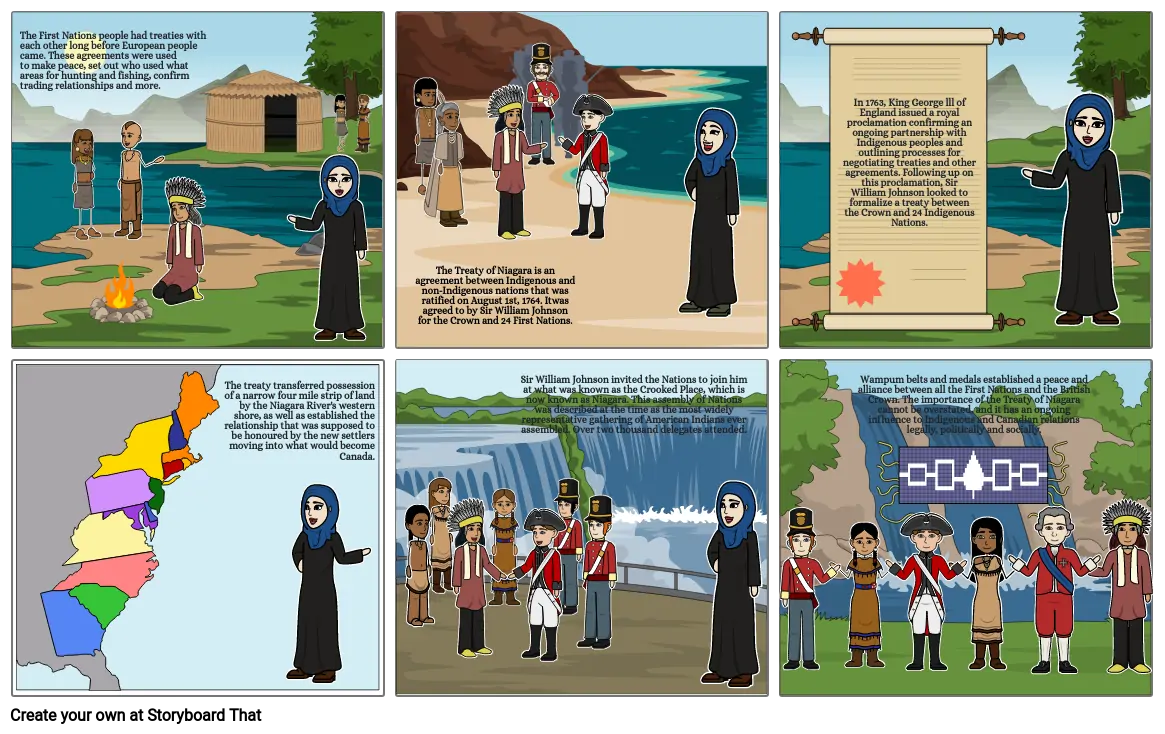The Niagara Treaty

Texte du Storyboard
- The First Nations people had treaties witheach other long before European peoplecame. These agreements were usedto make peace, set out who used whatareas for hunting and fishing, confirmtrading relationships and more.
- The treaty transferred possession of a narrow four mile strip of land by the Niagara River's western shore, as well as established the relationship that was supposed to be honoured by the new settlers moving into what would become Canada.
-
- The Treaty of Niagara is an agreement between Indigenous and non-Indigenous nations that was ratified on August 1st, 1764. Itwas agreed to by Sir William Johnson for the Crown and 24 First Nations.
- Sir William Johnson invited the Nations to join him at what was known as the Crooked Place, which is now known as Niagara. This assembly of Nations was described at the time as the most widely representative gathering of American Indians ever assembled. Over two thousand delegates attended.
-
-
- In 1763, King George lll of England issued a royal proclamation confirming an ongoing partnership with Indigenous peoples and outlining processes for negotiating treaties and other agreements. Following up on this proclamation, Sir William Johnson looked to formalize a treaty between the Crown and 24 Indigenous Nations.
- Wampum belts and medals established a peace and alliance between all the First Nations and the British Crown. The importance of the Treaty of Niagara cannot be overstated, and it has an ongoing influence to Indigenous and Canadian relations legally, politically and socially.
Plus de 30 millions de storyboards créés

